26th January is celebrated every year in India as Republic Day. This is because the Constitution of India was brought into effect this day in 1950 along with the fundamental rights. So, first of all, we wish you a delighted 73rd Republic Day.
On this occasion, we compiled a list of books for you to rethink a Republican India through a different perspective and help you debunk a few biases or blind spots you too might have of your own!
1. Republic of Rhetoric: Free Speech and the Constitution of India by Abhinav Chandrachud
This book is primarily for anyone interested in the concept of freedom of speech and talks in great detail about India's existing penal laws. It includes well-researched information from the judgments made by the supreme court and other courts and additional sources. You can find the book here.
2. How India Became Democratic: Citizenship and The Making of The Universal Franchise by Ornit Shani
Like the name suggests, this book talks precisely about how the electoral roll was grounded in India before people became citizens of India and people's struggle to get their voting rights. The book draws on well-researched archival records to reference its details. You can find the book here.
3. Makers of Modern India by Ramachandra Guha
Makers of Modern India reads like a collection of biographies of the said makers of the post-colonial Indian and our present. They all have their unique ways of solving communal alienation in diverse countries, caste issues, etc. You can find the book here.
4. Democrats and Dissenters by Ramachandra Guha
Democrats and Dissenters is a compilation of witty essays written by Ramachandra Guha covering topics such as socialism, nationalism, freedom, liberty, etc., from the perspective of the great thinkers. You can find the book here.
5. The Idea of India by Sunil Khilnani
An extended essay is divided into four sections tracing the Indian history from independence onwards with an unbiased opinion while it explains Nehru's vision of India in length. It can also be read as a biography of Nehru's perspective on Nationhood. You can find the book here.
6. The Discovery of India by Jawaharlal Nehru
Jawaharlal Nehru wrote this account while imprisoned at Ahmednagar fort for participating in the Quit India Movement. He goes into rich detail about India's prosperous history, talking at length about Indian history, culture, philosophy, and the Vedas, Upanishads, and other texts on ancient Indian culture and history. You can find the book here.
7. India's Legal System by Fali S Nariman
Fali S Nariman is a renowned constitutional expert and senior Supreme Court lawyer whose thought-provoking writing in this book directs its audience to introduce the Indian legal system and its internal politics, strengths, and weaknesses that make or break the case. Overall, this book is best for people interested in understanding the evolution of the Indian legal system. You can find the book here.
8. The Case That Shook India: The Verdict that led to Emergency by Prashant Bhushan
This book extensively talks about the Emergency case of the Indira Gandhi v. Raj Narain, watershed case, and the in-and-out-goings of the courtroom, maneuvering under threats, bribes, and deceit. This book can be read as a historical document and a significant legal reportage. You can find the book here.
9. The Great Repression: The Story of Sedition in India by Chitranshul Sinha
This legal reportage is straightforward and does not get too technical as to still be read by a layman as a story while still keeping things interesting. In this book, Sinha traces the history of Sedition and its use against any kind of political opposition. You can find the book here.
10. The Burden of Democracy by Pratap Bhanu Mehta
The Burden of Democracy is a tedious account by the author about democracy based on illiteracy and a mistaken view of the state's proper function. You can find the book here.
11. The End of India by Khushwant Singh
This book focused on the deepening of fascism in India and explains how radicalism is created in a country like India. Through Khushwant Singh's writing, as he always does, he presents the authentic portrayal of India as it has actually been like. You can find the book here.
12. India's Struggle for Independence: 1857-1947 by Bipan Chandra
Anyone wishing to read an ever-so-detailed account of the Indian Independence movements. It includes excellent detail about the revolt of 1857 and ends with the partition of India and Pakistan. Best for anyone who wants to look into different reinterpretations of the Indian freedom struggle. You can find the book here.
13. Why I Am a Liberal: A Manifesto for Indians Who Believe in Individual Freedom by Sagarika Ghose
Why I am a liberal is lengthy documentation of all the accommodating reasons Indians should adopt liberalism actively and explain how that could help fight discrimination and marginalization. You can find the book here.
14. Sixteen Stormy Days: The Story of The First Amendment of India by Tripurdaman Singh
Sixteen Stormy Days explains the tension-filled days of the last sixteen days before the first amendment of the Indian constitution. It includes documents, reports, and speeches made in opposition both in and out of the Parliament. You can find the book here.
15. Vision For a Nation: Paths and Perspectives by Ashish Nandy & Aakash Singh Rathore
The vision for a nation aims to invigorate a reinterpretation of Nationhood as it talks about how the constitution and India's citizens come to play the role they perform in a democracy and reads a collection of theories of India's opinionated hypothesis makers. You can find the book here.
This book is primarily for anyone interested in the concept of freedom of speech and talks in great detail about India's existing penal laws. It includes well-researched information from the judgments made by the supreme court and other courts and additional sources. You can find the book here.
2. How India Became Democratic: Citizenship and The Making of The Universal Franchise by Ornit Shani
Like the name suggests, this book talks precisely about how the electoral roll was grounded in India before people became citizens of India and people's struggle to get their voting rights. The book draws on well-researched archival records to reference its details. You can find the book here.
3. Makers of Modern India by Ramachandra Guha
Makers of Modern India reads like a collection of biographies of the said makers of the post-colonial Indian and our present. They all have their unique ways of solving communal alienation in diverse countries, caste issues, etc. You can find the book here.
4. Democrats and Dissenters by Ramachandra Guha
Democrats and Dissenters is a compilation of witty essays written by Ramachandra Guha covering topics such as socialism, nationalism, freedom, liberty, etc., from the perspective of the great thinkers. You can find the book here.
5. The Idea of India by Sunil Khilnani
6. The Discovery of India by Jawaharlal Nehru
Jawaharlal Nehru wrote this account while imprisoned at Ahmednagar fort for participating in the Quit India Movement. He goes into rich detail about India's prosperous history, talking at length about Indian history, culture, philosophy, and the Vedas, Upanishads, and other texts on ancient Indian culture and history. You can find the book here.
7. India's Legal System by Fali S Nariman
Fali S Nariman is a renowned constitutional expert and senior Supreme Court lawyer whose thought-provoking writing in this book directs its audience to introduce the Indian legal system and its internal politics, strengths, and weaknesses that make or break the case. Overall, this book is best for people interested in understanding the evolution of the Indian legal system. You can find the book here.
8. The Case That Shook India: The Verdict that led to Emergency by Prashant Bhushan
This book extensively talks about the Emergency case of the Indira Gandhi v. Raj Narain, watershed case, and the in-and-out-goings of the courtroom, maneuvering under threats, bribes, and deceit. This book can be read as a historical document and a significant legal reportage. You can find the book here.
9. The Great Repression: The Story of Sedition in India by Chitranshul Sinha
This legal reportage is straightforward and does not get too technical as to still be read by a layman as a story while still keeping things interesting. In this book, Sinha traces the history of Sedition and its use against any kind of political opposition. You can find the book here.
10. The Burden of Democracy by Pratap Bhanu Mehta
The Burden of Democracy is a tedious account by the author about democracy based on illiteracy and a mistaken view of the state's proper function. You can find the book here.
11. The End of India by Khushwant Singh
This book focused on the deepening of fascism in India and explains how radicalism is created in a country like India. Through Khushwant Singh's writing, as he always does, he presents the authentic portrayal of India as it has actually been like. You can find the book here.
12. India's Struggle for Independence: 1857-1947 by Bipan Chandra
Anyone wishing to read an ever-so-detailed account of the Indian Independence movements. It includes excellent detail about the revolt of 1857 and ends with the partition of India and Pakistan. Best for anyone who wants to look into different reinterpretations of the Indian freedom struggle. You can find the book here.
13. Why I Am a Liberal: A Manifesto for Indians Who Believe in Individual Freedom by Sagarika Ghose
Why I am a liberal is lengthy documentation of all the accommodating reasons Indians should adopt liberalism actively and explain how that could help fight discrimination and marginalization. You can find the book here.
14. Sixteen Stormy Days: The Story of The First Amendment of India by Tripurdaman Singh
Sixteen Stormy Days explains the tension-filled days of the last sixteen days before the first amendment of the Indian constitution. It includes documents, reports, and speeches made in opposition both in and out of the Parliament. You can find the book here.
15. Vision For a Nation: Paths and Perspectives by Ashish Nandy & Aakash Singh Rathore
The vision for a nation aims to invigorate a reinterpretation of Nationhood as it talks about how the constitution and India's citizens come to play the role they perform in a democracy and reads a collection of theories of India's opinionated hypothesis makers. You can find the book here.

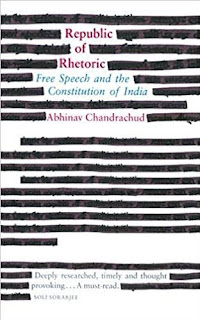
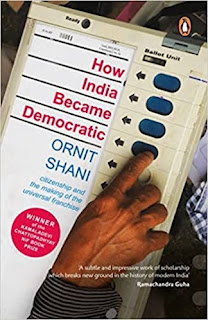
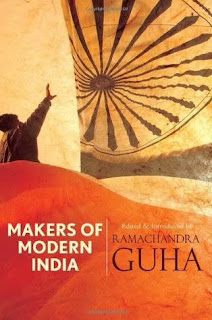
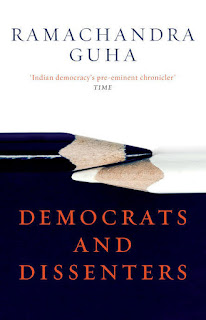


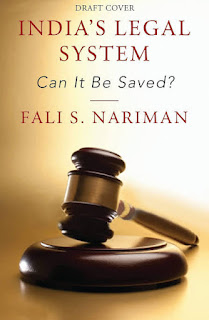
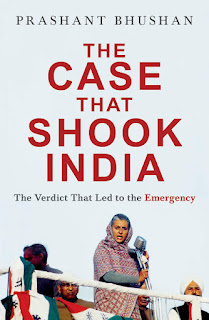




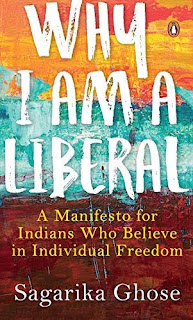

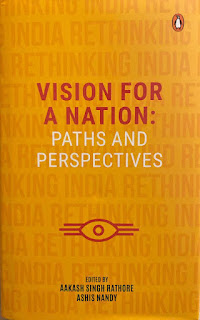





No comments:
Post a Comment